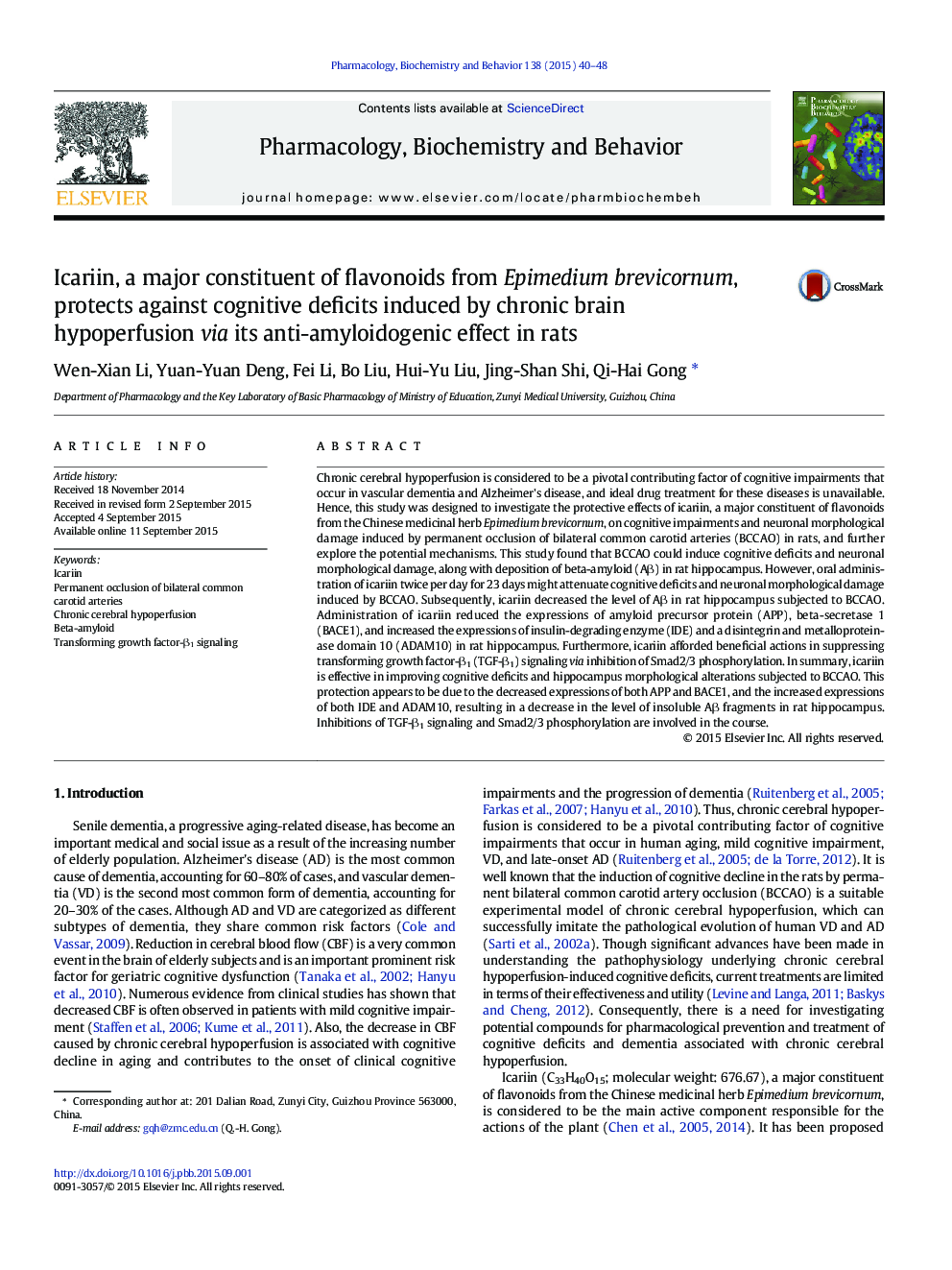| کد مقاله | کد نشریه | سال انتشار | مقاله انگلیسی | نسخه تمام متن |
|---|---|---|---|---|
| 2012713 | 1541846 | 2015 | 9 صفحه PDF | دانلود رایگان |

• Icariin may attenuate cognitive deficits and neuronal morphological damage induced by BCCAO.
• Icariin decreases the Aβ1–40 and Aβ1–42 levels subjected to BCCAO in hippocampus.
• Icariin reduces APP and BACE1 expression, increases IDE and ADAM10 expression.
• Icariin represses TGF-β1 signaling via inhibition of Smad2/3 phosphorylation.
Chronic cerebral hypoperfusion is considered to be a pivotal contributing factor of cognitive impairments that occur in vascular dementia and Alzheimer's disease, and ideal drug treatment for these diseases is unavailable. Hence, this study was designed to investigate the protective effects of icariin, a major constituent of flavonoids from the Chinese medicinal herb Epimedium brevicornum, on cognitive impairments and neuronal morphological damage induced by permanent occlusion of bilateral common carotid arteries (BCCAO) in rats, and further explore the potential mechanisms. This study found that BCCAO could induce cognitive deficits and neuronal morphological damage, along with deposition of beta-amyloid (Aβ) in rat hippocampus. However, oral administration of icariin twice per day for 23 days might attenuate cognitive deficits and neuronal morphological damage induced by BCCAO. Subsequently, icariin decreased the level of Aβ in rat hippocampus subjected to BCCAO. Administration of icariin reduced the expressions of amyloid precursor protein (APP), beta-secretase 1 (BACE1), and increased the expressions of insulin-degrading enzyme (IDE) and a disintegrin and metalloproteinase domain 10 (ADAM10) in rat hippocampus. Furthermore, icariin afforded beneficial actions in suppressing transforming growth factor-β1 (TGF-β1) signaling via inhibition of Smad2/3 phosphorylation. In summary, icariin is effective in improving cognitive deficits and hippocampus morphological alterations subjected to BCCAO. This protection appears to be due to the decreased expressions of both APP and BACE1, and the increased expressions of both IDE and ADAM10, resulting in a decrease in the level of insoluble Aβ fragments in rat hippocampus. Inhibitions of TGF-β1 signaling and Smad2/3 phosphorylation are involved in the course.
Figure optionsDownload as PowerPoint slide
Journal: Pharmacology Biochemistry and Behavior - Volume 138, November 2015, Pages 40–48